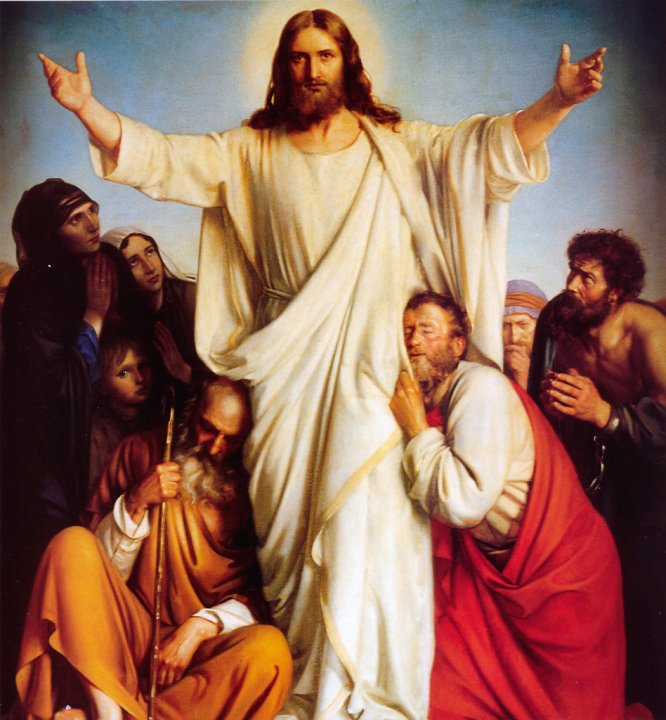THE MOST HOLY TRINITY SUNDAY-A
I Reading: Exodus 34:4-6.8-9: Lord, a God of tenderness and
compassion.
II
Reading: 2 Corinthians: 13:11-13: The grace of Jesus Christ, the love of God,
and the fellowship of the Holy Spirit.
Gospel: John 3: 16-18: God sent his Son so that through him the world might be saved.
The
Solemnity of the Most Holy Trinity reminds us of the indwelling presence and the
unity of one God, the Three Divine Persons who share their life with us in the
Baptism, Sign of the Cross, Creed, Doxology, etc.
God
is love; God of tenderness and compassion, slow to anger and rich in kindness
and compassion and the creator of the universe.
Jesus
is the Son of God, the redeemer who reveals the love of God and forgives the
sins of the world and gives eternal life. Jesus came into the world to
teach us God’s unlimited love for everyone.
The
Holy Spirit is the outpouring of the love of God and His Son Jesus Christ who
sanctifies us and the world. The best way to start knowing God is to discover
his kindness and compassion and to obey His commandments.
The
presence of the Holy Trinity we find in the first creation story of Genesis
1:26 “Let us make man in our image and to our likeness.” St Paul greets the
Corinthians with the Trinitarian formula in today’s second reading. Mary was
conceived by the power of the Holy Spirit. Jesus was born of the Spirit. He was
baptized with the Holy Spirit, he was appointed by the Spirit and proclaimed
the Good News to the poor in the temple, he was led to the desert by the Spirit
and finally, he breathed his spirit to his disciples and sent the Advocate, the
Holy Spirit upon his apostles and Mary on Pentecost.
The
three Divine Persons (God, Son, and Holy Spirit) become the source of our unity,
peace, and true joy on the earth and in heaven after our death. The gift of the
Holy Trinity to bear fruits (Gal 5:22f) in us to imitate the unity and mutual
love that exists between Father, Son, and Holy Spirit. Our mutual love will
yield a precious fruit: a deep joy and peace in life.
Revelation: God’s Great Love, John 3:16-18
This
is the world’s most well-known Scripture. Brief and to the point, Jesus
revealed God’s great love.
1.
The fact: God so loved (v.16) the world and created the human beings in his
image and likeness. The creation is God’s love for humanity.
2.
The evidence: God gave (v.16) his son only begotten Son Jesus Christ who was born
of the Virgin Mary by the power of the Holy Spirit.
3.
The purpose: To save (v.16) the world and humankind.
a. From perishing
b. To eternal life
c. By believing
4.
The proof: God sent His Son (the Incarnation) (v.17)
a. Not to condemn
b. But to save
5.
The means: Through Him (v.17)
Thought: God’s love
is that God took the initiative to save humans. Humans did not seek to save
himself or herself; God sought to save him/her. God gave His Son so that we
might be forgiven and saved. God is the seeking Saviour.
How can we experience
the love, joy, peace, and unity of the Holy Trinity in our faith journey of witnessing life in our family, church, and the world?
